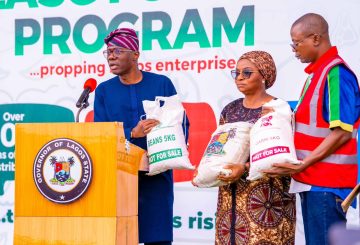According to the World Bank Group, the demanding objectives of poverty reduction and shared prosperity cannot be met in the medium to long term with the projected per capita income growth of 0.7% for Nigeria and the rest of Sub-Saharan Africa in 2022.
The Washington-based bank claimed in its most recent study, “Africa’s Pulse: An analysis of issues shaping Africa’s economic future,” that pandemic-related trends in poverty reduction had further slowed.
The research claims that the pandemic has had a long-lasting effect on long-term growth, mainly impacting the poorest individuals and escalating extreme poverty.
It further stated that the feeble recovery of the Nigerian economy following the pandemic and the setback caused by rising prices were insufficient to make up for job and income losses brought on by the pandemic.
Part of the report stated, “Rising inflation is weighing on economic activity in Sub-Sahara. The upward trend in inflation following the post-pandemic period was exacerbated by the war in Ukraine, soaring to record highs in many countries.
The escalation of the war has fueled a rise in commodity prices, particularly food and energy prices. High pass-through of food and fuel prices to consumer prices has caused headline inflation to spike.”
According to the World Bank, the economic activity in Nigeria is being hampered by growing inflation, which was already on the rise after the post-pandemic period but was made worse by the conflict in Ukraine.
The report read further, “The escalation of the war has fueled a rise in commodity prices, particularly food and energy prices. High pass-through of food and fuel prices to consumer prices has caused headline inflation to spike.
The fiscal space to mount effective responses today is gone because of high levels of debt across Sub-Saharan African countries, rising borrowing costs, and depleted public savings.”
The research comes after the Bank’s earlier publication, “A Better Future for All Nigerians: Nigeria Poverty Assessment 2022,” which stated that substantial structural changes supported by solid data are urgently required to help millions of Nigerians escape poverty.
It also stated that Nigeria’s efforts to reduce poverty are being hampered by slow growth, inadequate human capital, flaws in the labor market, and exposure to shocks.
As many as four out of every ten Nigerians live below the poverty line, according to the research, which compiles the most recent data on the profile and causes of poverty in Nigeria.
The National Bureau of Statistics estimated that almost 133 million Nigerians, or 62.9% of the country’s population, were multidimensionally poor in its most current analysis of the country’s poverty map. Since the World Bank’s earlier this year prediction, which put 95 million Nigerians below the poverty line, the number has increased significantly.





